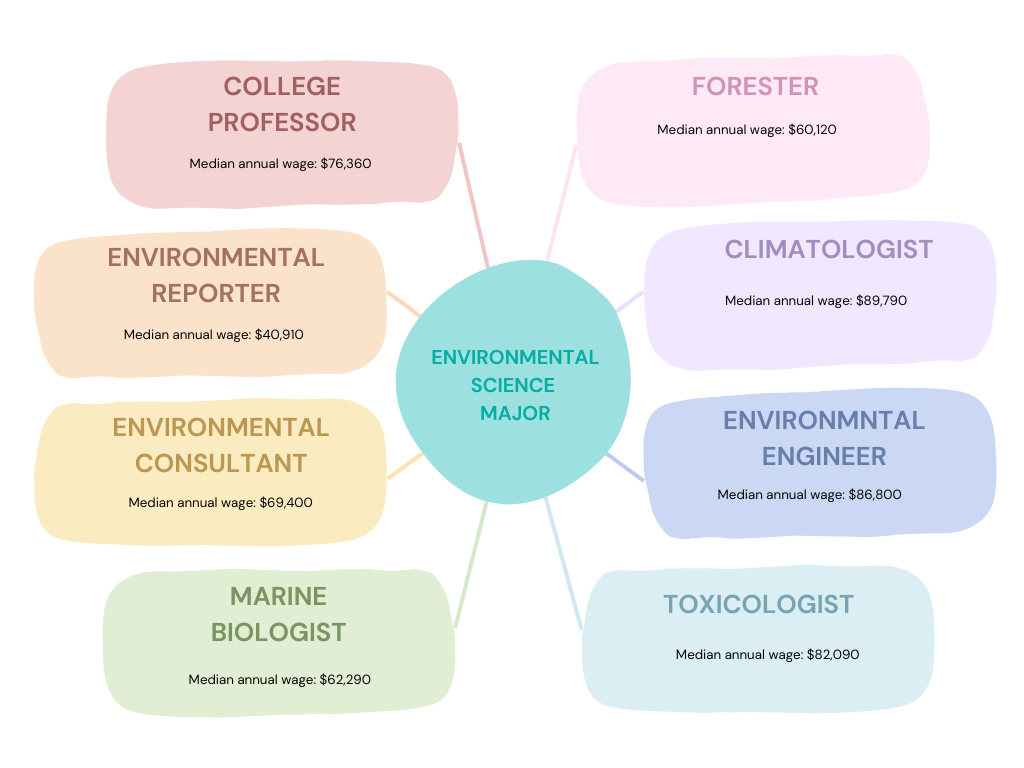Welcome to “Geoscience Research and Education Unveiled: Your Comprehensive Guide”! It provides a brief outlook of the sphere that may seem really challenging and, at the same time, thrilling for students. It is the science about the world we live in – the latest research and discoveries that help us to understand how everything around us works. Today, it is worth trying this sphere as your future profession because it includes lots of directions that help humankind to progress.
Geoscience Research Institute: Making Science Exciting & Accessible
The PROGRESS (PROmoting Geoscience, Research, Education and SuccesS) Program is focused on recruiting and mentoring STEM women students into the field of Earth and Environmental Sciences. Utilizing (in)formal, peer, and professional mentoring, the organization recruits undergraduate women from two regions: the Carolinas (led by Dr. Sandra Clinton, an Assistant Professor in the Department of Geography and Earth Sciences) and the Colorado/Wyoming Front Range (led by Dr. Emily Fischer, an Assistant Professor in the CSU Atmospheric Science Department). Young people engaged in the program gain a better self-awareness of their strengths and values and boost their knowledge in the Earth and Environmental Sciences.
Earth and Environmental Science Explained
Earth and Environmental Science is a combination of theoretical study with practical application, that gives knowledge and skills to help the next generation understand and protect our world.
However, a human is often to blame for catastrophes that happen. This field encourages us to do deep research on processes that happen on our planet and shows us how complicated and fragile our ecosystem is. It’s no doubt environmental science is not the easiest academic sphere. Many students, qualified writers, and professional scholars seek help from this or that essay writing service online to write essays and other scientific works in the niche.
Let’s have a look at 6 areas of environmental science:
| Ecology | It is a science that may be one of the most important in modern life because humanity, as well as other organisms, depends on the state of nature, and the misbalance in ecosystems leads to terrible consequences. The task of ecologists is to save nature and to find wise and effective ways to coexist peacefully and safely. |
| Atmospheric Science | Atmosphere is one of the main conditions of our existence, so it is important to investigate it and conduct studies in order to better understand and reduce the impact of people on it. |
| Geoscience | Geoscientists investigate the Earth’s solid constituents, encompassing the profound scrutiny of rocks and soils and the dynamic processes that shape the material of our planet’s structure over time, encompassing the captivating realms of plate tectonics and erosion. |
| Oceanography | It deals with everything that is connected to oceans: marine life, peculiarities of flora and fauna that live in oceans, as well as the influence of changes in climate and the impact of humans. |
| Environmental Chemistry | It is a crucially important branch because it studies the influence of factories and plants as well as other objects that do harm to the ecology. Contamination of soils, water, and air is a number one problem that requires many resources and investigations. |
| Environmental Policy and Management | This sector involves creating, implementing, and assessing policies to manage biological resources sustainably and mitigate human impacts on the environment. |
Interested in Earth and Environmental Science?
There are people who have been curious about nature since childhood – they use the magnifying glass to explore the world, and they spend lots of time observing butterflies and dragonflies; they are charmed by the fantastic microworld of insects and plants. If you were a child like this, you have the possibility to study climate system science and discover the new world and even make it better.
Here are a few climate system science major indicators that suggest it could be an ideal match for your aspirations and inclinations:
- Active way of life and love to spend time outdoors
- Urge for experiments and discoveries
- Strong desire to become an inventor
- Genuine interest in the puzzle named nature
- Passion for reading
- Hunger for the new information
- Desire to become a part of the scientific world
What Can You do with an Earth and Environmental Degree?
It would be wrong to think that Earth and Environmental Science is a dull sphere with a poor choice of professions – just have a look at this list and see what niche you’d like to become part of to develop new skills and knowledge and dedicate your life to science and humankind.
- Geoscientist: If you choose this profession, your task will be to examine the tangible facets of our planet, encompassing its intricate composition, structure, and dynamic mechanisms.
- Environmental Scientist: Within this position, your primary focus would revolve around the comprehensive study and formulation of strategies aimed at safeguarding the environment.
- Climate Scientist: Your scope of study would encompass intricate analysis of meteorological patterns, the phenomenon of climate change, and the consequential ramifications inflicted upon the Earth’s delicate ecosystem.
- Environmental Consultant: In this realm, your endeavors involve collaborating with corporations to ensure their adherence to environmental regulations, conducting comprehensive assessments of environmental impacts, and providing guidance on strategies to mitigate ecological damage.
Is There the Difference between Earth Science and Environmental Science?
While these sciences explore aspects of our planet and its processes, their focus areas and methodologies can differ.
As expert Don Mac explains, Earth Science focuses on the “geosphere” – the rocks and solid matter that make up our Earth. The Earth sciences field encompasses geology, seismology, and paleontology, embarking on an ardent quest to unravel the cryptic tapestry of our planet’s history, comprehend its present condition, and prognosticate its future trajectory.
On the other hand, Environmental Science focuses more on the “biosphere” and the challenges facing life. It studies the interactions between organisms and their surroundings, including how human activities impact the environment—topics in environmental science span from biodiversity and ecosystems to environmental pollution and climate change.
Top Paid Jobs among Earth and Environmental Scientists
As the significance of these disciplines surges in a team with the escalating environmental consciousness and apprehension, the prospects for lucratively rewarding careers also soar. Here, we present a handful of noteworthy examples of сareers in the geosciences:
| Petroleum Geologists | It is a well-known fact that these geologists are often among the highest-paid professionals in the Department of Earth and Environmental Science as petrol has a leading role in the modern economy. |
| Environmental Lawyers | They specialize in laws and policies related to the environment, often advising businesses on compliance or representing clients in environmental disputes. |
| Environmental Managers | Their task is to oversee an organization’s environmental strategy and ensure ecological laws and regulations compliance. |
| Geoscientists | Besides petroleum geologists, other geoscientists earn high salaries, particularly those specializing in seismology or geophysics, which have significant implications for industries. |
| Hydrologists | These scientists study how water moves across and through the Earth’s crust. They use their expertise to solve problems like water availability, quality, and sustainability. |
| Senior Environmental Consultants | With years of experience, senior environmental consultants can command high salaries for expert advice on environmental management, impact assessments, and regulatory compliance. |
Pursuing Geoscience Education: Best Environmental Studies Schools in the USA
The area of environment is getting bigger and bigger, and these colleges are at the top when it comes to quality of education, knowledge of professors, study possibilities, tools to perform thorough geoscience research, and getting students jobs. Here are 8 best-known programs to choose from:
Stanford University
Known for its cutting-edge research and comprehensive curriculum, Stanford’s School of Earth, Energy & Environmental Sciences provides students with a thorough understanding of environmental systems and their challenges.
University of California, Berkeley
UC Berkeley’s College of Natural Resources provides a challenging interdisciplinary approach, seamlessly interlacing the realms of natural and social sciences, with the goal of addressing intricate environmental challenges head-on.
Yale University
Yale’s School of the Environment has established itself as a renowned institution, widely recognized for its comprehensive program in environmental studies.
Massachusetts Institute of Technology (MIT):
The Department of Earth, Atmospheric, and Planetary Sciences at MIT showcases remarkable expertise across a wide spectrum of disciplines, including geology, geophysics, and climate science. This proficiency cultivates a holistic and comprehensive understanding of what environmental science is.
Columbia University
Home to the esteemed Earth Institute, Columbia offers environmental studies students unparalleled access to a broad array of research centers and experts in the field.
University of California, Santa Barbara
UCSB’s School of Environmental Science & Management is highly regarded for its focus on solving critical environmental problems through interdisciplinary research and teaching.
Duke University
The Nicholas School of the Environment at Duke offers diverse programs addressing environmental challenges, with particular strengths in conservation science and environmental policy.
University of Michigan
The School for Environment and Sustainability at the University of Michigan is renowned for its interdisciplinary approach, combining natural and social sciences to address sustainability and environmental challenges.
Educational Programs in Earth and Environmental Studies Explained
Various academic programs are available for those interested in exploring the dynamic world of Earth and Environmental Studies. These programs typically fall into three main categories: undergraduate (Bachelor’s), graduate (Master’s), and doctoral (Ph.D.) programs.
- Undergraduate Programs: These undergraduate programs culminating in a Bachelor’s degree offer a comprehensive introduction to the realm, providing students with a broad perspective of the principles underpinning Earth and Environmental Science.
- Master’s Programs: These graduate programs delve deeper into the nuances of Earth and Environmental Science. Although maintaining an interdisciplinary nature, students frequently have the opportunity to cultivate expertise in specialized fields such as climate science, environmental policy, conservation biology, or geospatial analysis.
- Doctoral (Ph.D.) Programs: At the doctoral level, students engage in pioneering research within a specific realm of school Earth and Environmental Science, making original contributions that expand the frontiers of knowledge in the field.
Hydrology and Atmospheric Sciences: Their Role in Environmental Studies
The profound comprehension of Earth’s ecosystems and the profound impact of human activities upon them necessitates a meticulous exploration of both hydrological and atmospheric system science major. These fields play a crucial role in unraveling the intricate interplay within our planet’s delicate web of life.
- Hydrology studies water in all forms (liquid, solid, and gas) across and beneath the Earth’s surface. It involves understanding water distribution, movement, and properties in various ecosystems. Hydrologists immerse in a diverse array of subjects, delving into the intricate dynamics surrounding groundwater flow, surface runoff, water availability, and the significant implications of climate change on our invaluable water resources.
- The field of Atmospheric Sciences involves a comprehensive exploration of Earth’s atmosphere and its intricate workings. It encompasses the meticulous study of weather patterns, the chemical composition of the atmosphere, the dynamics of climate system, and the complex interactions between the atmosphere and other Earth systems. Atmospheric scientists play a crucial role in forecasting weather conditions, predicting long-term climate trends, assessing air quality and pollution levels, and gaining a deep understanding of the far-reaching effects of climate change.
Hydrology and atmospheric sciences are intertwined and critical elements of Environmental Studies. By understanding these systems and their interactions, scientists can better predict environmental changes, manage resources, and develop strategies to mitigate environmental challenges. The issues we’ve just mentioned are also highly popular among college students that write research papers and other scientific works. If you don’t feel like you can do it yourself, hire an expert writer from a reputed research paper writing service for pieces of advice. You’ll see for yourself how exciting the niche is!
A Few More Places in the USA to Study Natural Resources and the Environment
Beyond the more commonly recognized programs like PROGRESS, these schools offer excellent curricula, faculty expertise, and opportunities for research or fieldwork, making them compelling choices for aspiring environmental scientists. Here are a few:
- The University of Colorado Boulder: CU Boulder’s Environmental Studies Program places great emphasis on an interdisciplinary approach, providing a broad-based curriculum that seamlessly integrates the natural and social sciences to comprehensively study the environment.
- Cornell University: Cornell’s College of Agriculture and Life Sciences boasts a comprehensive program in Natural Resources, offering a strong foundation in diverse fields such as climate system science, conservation biology, and environmental policy.
- University of Florida: The School of Natural Resources and Environment at UF provides multidisciplinary training with a distinct emphasis on promoting the sustainable management of natural resources.




